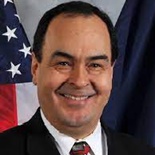Other Elections of Interest
COMING SOON
08-18-26 Primary ElectionAlaska General
November 05, 2024
Presidential Candidates
Republican
Democrat
U.S. Rep., At Large
Supreme Court (retention)
Court of Appeals (retention)
State Senator, Dist. D
State Senator, Dist. F
State Senator, Dist. H
State Senator, Dist. J
State Senator, Dist. L
State Senator, Dist. N
State Senator, Dist. P
State Senator, Dist. R
State Rep., Dist. 1
State Rep., Dist. 5
State Rep., Dist. 6
State Rep., Dist. 7
State Rep., Dist. 8
State Rep., Dist. 9
State Rep., Dist. 10
State Rep., Dist. 11
State Rep., Dist. 12
State Rep., Dist. 13
State Rep., Dist. 14
State Rep., Dist. 15
State Rep., Dist. 16
State Rep., Dist. 18
State Rep., Dist. 19
State Rep., Dist. 20
State Rep., Dist. 21
State Rep., Dist. 22
State Rep., Dist. 23
State Rep., Dist. 27
State Rep., Dist. 28
State Rep., Dist. 30
State Rep., Dist. 31
State Rep., Dist. 32
State Rep., Dist. 34
State Rep., Dist. 35
State Rep., Dist. 36
State Rep., Dist. 37
State Rep., Dist. 38
State Rep., Dist. 39
State Rep., Dist. 40
Ballot Measure No. 1 - Increasing the Minimum Wage, Requiring Paid Sick Leave, and Prohibiting Mandatory Meetings about Religious and Political Issues
This act would increase the minimum wage to $13 per hour in 2025, $14 per hour in 2026, and $15 per hour in 2027. The minimum wage would increase with inflation after that. The minimum wage would always be at least $2 above the federal minimum wage.
This act would also require paid sick leave for many employees. Smaller employers would allow 40 or more hours of sick leave per year. Larger employers would allow 56 or more hours. Sick leave would carry over to the next year.
This act would prohibit employers from making their employees attend meetings about religious or political issues. These issues include whether or not to join or support a religious, political, or labor organization. Some employers would be exempt and all employers could still communicate about issues required by law or related to the workplace.
Should this initiative become law?
Ballot Measure No. 2 - Restoring Political Party Primaries and Single-Choice General Elections
This act would get rid of open primary elections and ranked-choice general elections.
It would bring back political party primaries and single-choice general elections. Elections will occur exactly as they did before a previous ballot measure changed the election laws in 2022. In the primary election, voters will choose a party’s ballot. They will vote for one candidate and the winning candidate will be the party’s nominee. In the general election, voters will select one candidate. The candidate with the most votes will win.
This act would also bring back party petitions, special runoff elections, and other processes in place before 2022. It would put all election laws, except campaign finance laws, back the way they were before 2022.
Should this initiative become law?
OTHER RACES AND ISSUES ON YOUR BALLOT
Please note that your ballot may contain races, amendments, bond issues, and/or ballot measure not covered by iVoterGuide.
Take the Next Step
See Other Alaska Voter Guides
Learn how we rated the candidates you may have seen on your ballot in other elections.












